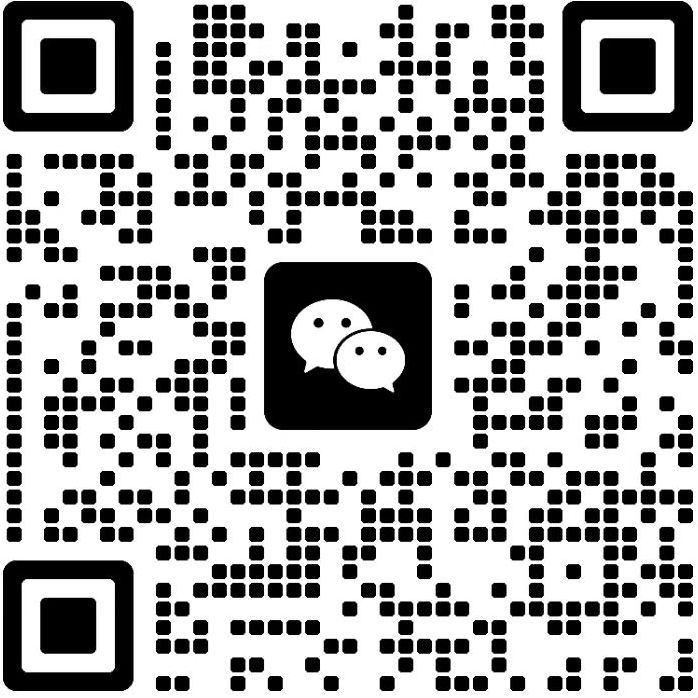一、什么是干扰信息?
1、填空题
例1:
剑桥5 Test 3 Section 1
Engine size: 1. __________
原文:The one I’ve got at the moment’s a 1.2-litre engine but I find it a bit slow on long journeys. I’d like a bit more power this time… 1.4 should do. I don’t think I need a 1.6 or anything.
答案:1.4 litres
解析:可以发现在这短短的几句话中,出现了三个可以表示engine size的数字:1.2,1.4和1.6,那么除了正确答案,剩下的两个,就是明显的干扰信息。而且正确答案既不是第一个,也不是最后一个,反而是中间的,如果无法正确辨析,就极易出错。

例2:
剑桥4 Test 3 Section 2
12. What will the reviewer concentrate on today?
A theatre
B dance
C exhibition
原文:The programme has sensational theatre, dance and also a large number of art exhibitions, but the thing the Festival is most famous for is its great street music. For today’s report though, Geoffrey, I’m looking at some of the theatrical events that you might like to see…
答案:A
解析:这道题就更加令人困惑了,可以发现单选题中的三个选项全部在原文中出现了,听到这里,恐怕考生都要茫然不知所措了。而真正的答案却在两句话后,通过同义转换的形式出现:theatrical events。
3、多选题
例3:
剑桥5 Test 1 Section 3
Questions 24&25
What TWO types of coursework are required each month on the part-time course?
A a case study
B an essay
C a survey
D a short report
E a study diary
原文:Well, it’s a mixture. You’d be expected to write an essay each month, which counts towards your final assessment. You have a case study to do by the end of the course, which might involve doing a survey or something like that, and also you need to hand in a short report every four weeks.
答案:B D
解析:可以发现,该多选题的五个选项,在原文中出现了四个,而正确答案只有两个,这往往会使得本来就听得云里雾里的考生,更加郁闷,很可能就随便蒙两个答案算了。
以上举的三个例子说明干扰信息无处不在,不管是哪个Section,什么题型,什么场景,什么类型的答案,都有可能出现干扰信息。既然干扰信息给我们做题带来如此大的困扰,我们到底该如何正确辨识干扰信息呢?
二、通过题目中的限定词排除干扰
干扰信息出现的情况如此多变复杂,我们的解决方法也不可能单一。有一大类的干扰信息的排除是可以在题目中就找到线索的,这就是我们所谓的限定词。通过仔细审题,找准题目中已经出现的限定词,可以帮助我们有效排除干扰。
1、限定词的定义
所谓限定词,就是在题目中出现,起到限定答案范围作用的词。换句话说,限定词可以帮助我们圈定答案范围,从而排除不符合限定的干扰信息。我们还是用一个例子来说明限定词的作用。
例4:
剑桥5 Test 4 Section 1
Intended length of stay: 3. ___________
原文:I’m planning on staying a year but at the moment I’m definitely here for four months only.
答案:1 year
解析:我们可以从题目中的length of stay,预测出我们要填的是一个表示时间的答案。在原文中我们听到了两个时间:one year和four months。那么我们从何判断出哪个是正确答案,哪个是干扰信息呢?这时候就要看题目中的“Intended”了,这个词表示“计划、打算”,于是限定了我们的答案必须是“打算住多久”。显然原文中的“I’m definitely here for four months”并不符合题目要求,而“I’m planning on staying a year”才是我们要的答案。题目中的“intended”和原文中的“planning”同义转换了。在这里,“intended”就是限定词。很明显,如果我们没有注意到这道题中的限定词,是无法排除干扰信息的。
2、怎样发现限定词
确切的说,我们要学习怎么判断一道题目中有没有限定词,以及哪些是限定词。要在审题的短短几十秒内做到这点,需要大量的练习和经验。
1、形容词
剑桥5 Test 4 Section 1
Maximum price: 9 £__________ a week
maximum表示最大,显然干扰信息一定都比正确答案要小。类似的词还有:minimum最小,most最多,least最小,major大部分的,minor小部分的,first第一,last最后,等等。
剑桥6 Test 3 Section 3
24 Jack thinks the music preferences of __________ listeners are similar.
看到similar,我们想到的恐怕不是same就是different吧!在这题中,same和similar同义转换,干扰信息就是表示different的内容。所以注意这个词就对了!
剑桥5 Test 1 Section 1
Next tour date 3 __________
原文中出现两个日期,一个是April 18th,一个是June 2nd,显然我们要填较近的那个日期。
通过以上例子我们可以发现,形容词作限定词的范围是非常之广的,但是显然,并不是题目中出现的所有形容词都是限定词。在判断限定词的时候,我们一定要记住,限定词的作用是缩小答案范围,那些只是单纯起修饰作用,没有限定作用,并且非常容易被替换的形容词,是无需注意的。比如:
剑桥4 Test 1 Section 1
good 1 _________
剑桥5 Test 3 Section 3
useful to have 24 _________
剑桥6 Test 2 Section 2
17 _________ essential
这三道题目中的三个形容词,不是被彻底替换了,就是在空后出现,还有的连替代词都没有出现。
2、表示时间的词或短语
在题目中出现表示时间的词的时候,常常意味着在原文中会出现好几个时间,只有符合题目时间要求的内容才是正确答案,其余都是干扰信息。比如:
剑桥6 Test 2 Section 2
13 Trains for London depart every _________ each day during the week.
剑桥5 Test 1 Section 3
Questions 24&25
What TWO types of coursework are required each month on the part-time course?
剑桥4 Test 3 Section 2
12. What will the reviewer concentrate on today?
剑桥4 Test 4 Section 4
37 The average number of sharks caught in nets each year is
A 15 B 150 C 1500
3、表示地点的词或短语
表示地点的词和表示时间的情况相同,也要注意多个地点出现。
剑桥5 Test 2 Section 4
average daily requirement for an adult in Antarctica is approximately 37__________ kilocalories
4、表示程度的词或短语
剑桥5 Test 2 Section 1
Fines start at 5 £_________
Computers can be booked up to 6 _________ hours in advance
剑桥5 Test 1 Section 1
8 Bookings must be made no later than _________ days in advance.
剑桥6 Test 3 Section 3
23 In total, the students must interview __________ people.
5、附加条件
剑桥5 Test 2 Section 1
Cost to join per year (without current student card): 3 £_________
Numbers of items allowed: (members of public): 4 £_________
剑桥7 Test 4 Section 3
There will be 21 _________ minutes for questions.
三、通过录音中的信号词排除干扰
显然,不是所有的题目都会在题目中显示限定词的,比如上文的例1:
Engine size: 1. __________
这样的题目就只能在听题过程中排除干扰信息,而不能在做题前就预测到答案范围。不过这并不意味着碰到这种情况,我们需要把原文完全听懂才能做对题目,一样是有技巧的。
原文:The one I’ve got at the moment’s a 1.2-litre engine but I find it a bit slow on long journeys. I’d like a bit more power this time… 1.4 should do. I don’t think I need a 1.6 or anything.
还是拿这道题作例子,我们可以发现原文中,在第一个干扰信息1.2后面出现了一个连接词but;而but后面出现的是我们的正确答案1.4;而在第二个干扰信息1.6前面出现了一个否定结构I don’t think,这就是我们常说的转折信号词和否定信号词。转折信号词but把第一个干扰信息排除了;否定信号词not把最后一个干扰信息排除了。这样,剩下的就是我们的正确答案了。
那么可以用来排除干扰的信号词有哪些呢?
1、转折信号词
1) but
but可以说是最常见的信号词,也是最有用的信号词了。一般来说,我们可以认为:but后面出现的是正确答案,例子很多,就不一一列举了。
需要注意的是,这个规律并不是放之皆准的。上文的例4恰恰就是个反例,我们再来看一下这段的录音原文:
例4:
剑桥5 Test 4 Section 1
原文:I’m planning on staying a year but at the moment I’m definitely here for four months only.
在这句话中也有but,可是but后面出现的却是干扰信息。请大家记住一条原则:限定词优先于信号词。
这意味着,在有限定词的情况下,一定要以限定为准,信号词的重要性低于限定词。
2) instead和instead of
3) however
4) although
5) sorry
2、否定信号词
1) no, not
2) rather than
3) minimal
3、时间信号词
时间信号词是我们比较少提及,也比较少关注的一类信号词。实际上如果我们对剑桥系列非常熟悉的话,可以发现,雅思听力在考察干扰信息的辨别时,很喜欢加入时间的因素。最常见的就是表示过去、现在和将来的时间概念。而在这三个时间概念中,最常成为答案的就是表示现在的信号词。我们来看一道例题:
例5:
6-2-2
Question 18-20
Which THREE attractions can you visit at present by train from Trebirch?
A a science museum
B a theme park
C a climbing wall
D a mining museum
E an aquarium
F a castle
G a zoo
答案:C D G
原文:You can enjoy many days out. Um there’s the Merthyr Mining Museum … Your children will find it just as fascinating as any theme park… You can visit the docks and spend a great day out with the children in the zoo, which is set in the parkland that used to surround the old castle. … including the new and internationally-acclaimed climbing wall built on the old aquarium. … the new science museum opens next year, …
解析:文中正确答案用直划线标出,干扰信息用曲划线标出,时间信号词用粗体标出。我们可以发现,除了第一个干扰信息,其余三个我们都可以用时间信号词排除。其中castle和aquarium是表示过去的信号词:used to和old;science museum用的是表示将来的信号词next year。
1)表示过去的信号词:last, past, used to, old, was等过去式
这其中尤其要注意used to和old,看上去越简单的词,在录音中越难听出来。
2) 表示现在的信号词:at present, at the moment, currently, so far, now
currently是雅思很爱用的一个词,但是对于有些同学来说可能会比较陌生。
so far一般和现在完成时连用,表示至今为止,也表示现在。
3) 表示将来的信号词:soon, next…, will, be going to
soon经常位于句尾,很容易被忽略
next后面一般接时间,比如next week, next month
通过以上分析,我们可以发现,掌握了排除干扰信息的方法,就为我们雅思听力的成功奠定了基础。但是没有任何技巧可以单独发挥作用,没有扎实的听力能力作基础,方法只是理论。没有什么方法是万能的,要走捷径,也要先学会走路才行。希望通过这篇文章,可以为考生们拨开雅思听力考试的重重迷雾,突破瓶颈,向满分进军。
以上就是根据各类题目的特点排除雅思听力干扰项的相关方法,非常详细的介绍了雅思听力题目中各类限制性词汇的分类,后面都有例题做解析。大家可以在备考自己的雅思听力考试的时候,进行适当的参考和借鉴。
 手机浏览
手机浏览
 全国
全国 18472316003
18472316003







